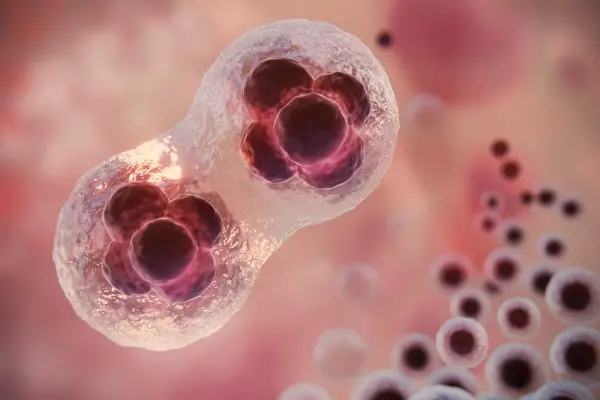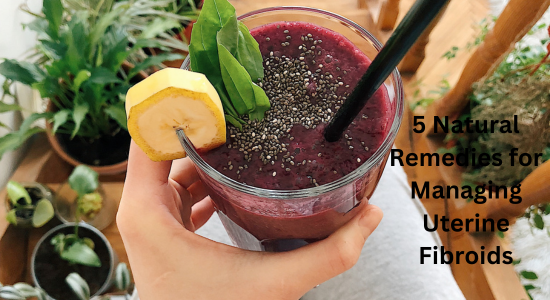Endometriosis can significantly impact fertility. Learn how endometriosis affects your reproductive health, treatment options, and steps to improve your chances of conception.
Introduction
Endometriosis is a painful condition where tissue similar to the lining of the uterus grows outside the womb. While it’s known for causing severe menstrual pain, it’s also a leading cause of infertility. If you’re struggling to conceive and suspect endometriosis, this guide will explain the connection, treatment options, and steps you can take to improve your fertility.
What is Endometriosis?
Endometriosis is a condition in which tissue similar to the lining of the uterus (endometrium) grows outside the uterus. This misplaced tissue can appear on the ovaries, fallopian tubes, and other pelvic organs, leading to inflammation, scarring, and pain. Unlike the normal endometrial lining that sheds during menstruation, this tissue has no way to exit the body, causing it to build up and create adhesions and cysts.
Common symptoms of endometriosis include:
- ✅ Chronic pelvic pain
✅ Heavy or irregular periods
✅ Painful intercourse
✅ Gastrointestinal issues (bloating, constipation, diarrhoea)
✅ Fatigue
✅ Infertility
While some women with endometriosis may not experience noticeable symptoms, others suffer from severe pain and reproductive challenges.
How Does Endometriosis Affect Fertility?
Endometriosis can lead to infertility in several ways, including:
1. Inflammation and Scarring
The chronic inflammation caused by endometriosis can lead to scar tissue (adhesions) forming around reproductive organs. This can distort the normal structure of the fallopian tubes and ovaries, making it difficult for an egg to travel and meet sperm.
2. Blocked Fallopian Tubes
If endometriosis causes adhesions around the fallopian tubes, it can block the path for the egg to reach the uterus. This prevents fertilization from occurring, significantly lowering the chances of pregnancy.
3. Poor Egg Quality and Ovulation Issues
Women with endometriosis may experience hormonal imbalances that affect egg quality and ovulation. The condition is also linked to reduced ovarian reserve (the number of eggs available for fertilization), making it harder to conceive naturally.

4. Endometriomas (Ovarian Cysts)
Endometriomas, or cysts that form on the ovaries due to endometriosis, can reduce ovarian function and damage healthy egg-producing tissue.

5. A Hostile Uterine Environment
Endometriosis can lead to increased levels of inflammatory chemicals that interfere with implantation. Even if fertilization occurs, the embryo may have difficulty attaching to the uterus, increasing the risk of miscarriage.
Can You Get Pregnant with Endometriosis?
Yes, many women with endometriosis can conceive, but their fertility journey may be more challenging. The severity of endometriosis plays a role in pregnancy success rates:
- Mild to moderate endometriosis: Women may conceive naturally or with minimal medical assistance.
- Severe endometriosis: Fertility treatments such as in vitro fertilization (IVF) may be necessary due to extensive scarring and damage to reproductive organs.
Seeking medical guidance early can help improve the chances of conception by addressing underlying complications.
Treatment Options for Endometriosis-Related Infertility
If you’re struggling with infertility due to endometriosis, several treatment options may help:
1. Medications to Manage Symptoms
While hormonal birth control pills, progestin therapy, and gonadotropin-releasing hormone (GnRH) agonists help control pain and reduce endometrial tissue growth, they are not ideal for women trying to conceive. However, they can be used temporarily to manage symptoms before attempting pregnancy.
2. Laparoscopic Surgery
Laparoscopic surgery is one of the most effective treatments for endometriosis-related infertility. It removes scar tissue, adhesions, and endometriomas, improving the chances of natural conception. Studies show that women who undergo laparoscopic surgery for mild to moderate endometriosis have an increased likelihood of getting pregnant afterward.
3. Assisted Reproductive Technology (ART)
For women with severe endometriosis or those who have not conceived naturally after surgery, fertility treatments like in vitro fertilization (IVF) can significantly improve pregnancy rates. IVF bypasses many of the fertility barriers caused by endometriosis, providing a higher chance of successful conception.
4. Lifestyle Changes to Boost Fertility
Certain lifestyle modifications can improve fertility outcomes for women with endometriosis:
- Anti-Inflammatory Diet – Eating foods rich in antioxidants (leafy greens, berries, fish) can reduce inflammation and support reproductive health.
- Regular Exercise – Moderate exercise helps balance hormones and reduce stress, both of which impact fertility.
- Stress Management – High stress levels can worsen endometriosis symptoms, so practices like yoga, meditation, and deep breathing can be beneficial.
- Supplements – Omega-3 fatty acids, vitamin D, and CoQ10 may help improve egg quality and fertility outcomes.
Emotional & Psychological Impact
Endometriosis and infertility can take a serious emotional toll, leading to:
- Anxiety and depression
- Relationship strain due to fertility struggles
- Feelings of isolation
Coping Strategies:
- Counseling or therapy (CBT can help manage stress)
- Support groups (Online communities and local groups for endometriosis and infertility)
- Self-care practices (Journaling, hobbies, relaxation techniques)
Key Statistics:
1. Prevalence of Endometriosis and Infertility
-
World Health Organization (WHO):
- Endometriosis affects 10% (190 million) of reproductive-age women worldwide.
- Source: WHO – Endometriosis
-
American Society for Reproductive Medicine (ASRM):
- 30-50% of women with endometriosis experience infertility, making it one of the leading causes of female infertility.
- Source: ASRM, “Endometriosis and Infertility,” www.asrm.org
2. Endometriosis and Natural Conception Rates
- European Society of Human Reproduction and Embryology (ESHRE):
- Mild endometriosis: 60-70% of women conceive naturally or with minimal treatment.
- Severe endometriosis: Only 10-30% of women conceive without assisted reproductive technology (ART).
- Source: ESHRE Guidelines on Endometriosis, www.eshre.eu
3. Impact of Endometriosis on Fertility Treatments
-
Laparoscopic Surgery and Pregnancy Rates:
- A study published in Fertility and Sterility (2019) found that laparoscopic removal of endometriotic lesions increased pregnancy rates by 30-50% within 6-12 months post-surgery.
- Source: Meuleman et al., Fertility and Sterility, 2019 (DOI link)
-
IVF Success Rates:
- American Society for Reproductive Medicine (ASRM):
- Mild endometriosis: 40-50% success rate per IVF cycle.
- Severe endometriosis: 20-30% success rate per IVF cycle.
- Source: ASRM, “IVF and Endometriosis,” www.asrm.org
- American Society for Reproductive Medicine (ASRM):
-
Miscarriage Risk:
- A meta-analysis published in Human Reproduction (2021) found that women with endometriosis have a 30-50% higher risk of miscarriage compared to women without the condition.
- Source: Ballweg ML, Human Reproduction, 2021 (DOI link)
4. Long-Term Fertility Impact
-
Ovarian Reserve Decline (AMH Levels):
- A study in The Journal of Clinical Endocrinology & Metabolism (2020) found that women with endometriosis have significantly lower AMH levels, leading to reduced ovarian reserve.
- Source: Kitajima et al., JCEM, 2020 (DOI link)
-
Delayed Diagnosis and Fertility Decline:
- The average time from symptom onset to diagnosis is 7-10 years, according to a report by the Endometriosis Foundation of America (EndoFound).
- Source: EndoFound, www.endofound.org.
Also read about: How to Balance Hormones Naturally: A Step-by-Step Guide.
Resources
- Link to a related article: “Endometriosis and Infertility: What You Need to Know “
Conclusion
Endometriosis and infertility are closely linked, but having this condition does not mean pregnancy is impossible. With the right combination of medical treatment, lifestyle changes, and fertility support, many women with endometriosis successfully conceive and have healthy pregnancies. Understanding how the condition affects fertility and exploring available options can help women make informed decisions about their reproductive health.
If you’re facing fertility challenges due to endometriosis, consult a healthcare provider to create a personalized treatment plan that suits your needs.


Pingback: The Impact of Smoking on Women’s Reproductive Health.
Pingback: 5 Natural Remedies for Managing Uterine Fibroids.